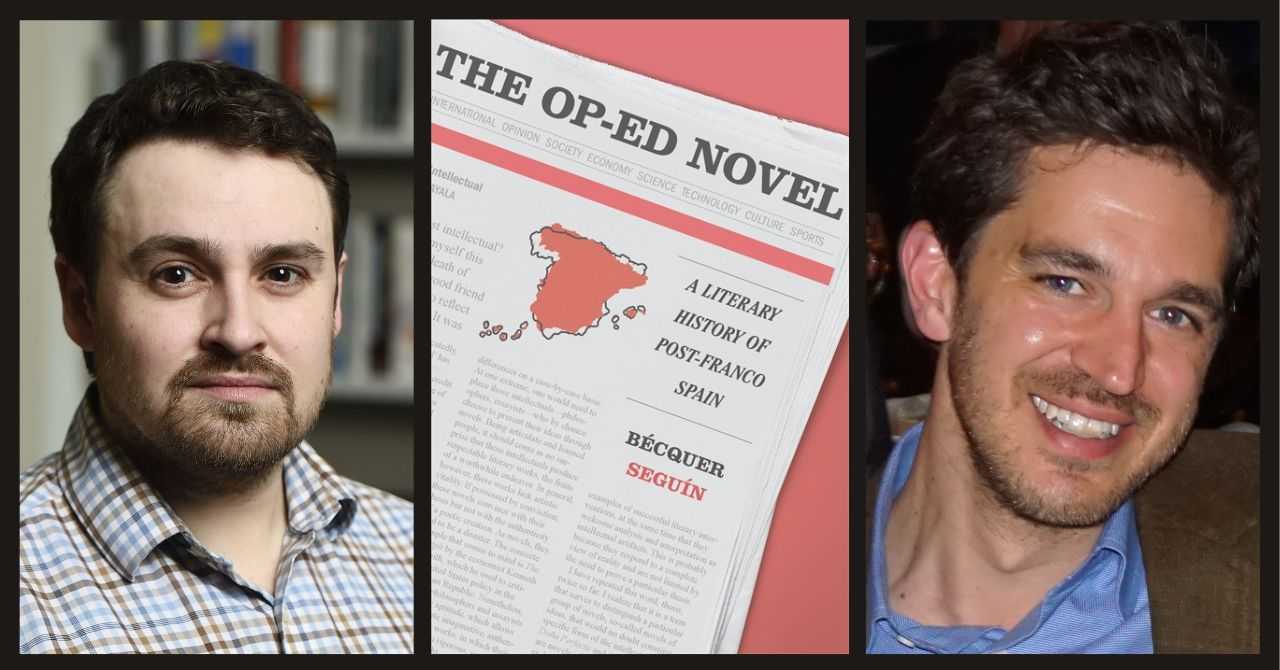- Cafe
- Bookstore
- Upcoming events
- Book an event
- Catering
- Institutional and bulk sales
- About Red Emma's
- Press
- Buy gift cards
- Red Emma's merch
- Donate to the Red Emma's Education Fund

Bécquer Seguín presents "The Op-Ed Novel" in conversation with Len Gutkin
This event has already happened.
Public intellectuals come in many different stripes, but most of them gain a following at least in part from their writing, whether in the form of magazine articles, newspaper columns, or full-length nonfiction. A few—James Baldwin and Joan Didion are celebrated examples—start out as novelists before turning to the rough-and-tumble of current affairs. In THE OP-ED NOVEL, Bécquer Seguín undertakes the first book-length study of how contemporary literature is shaped by opinion journalism, focusing on fiction writers who took to the papers in post-Franco Spain and became stewards of their country’s cultural, economic, and political future.
Following Spain’s transition to democracy in the late 1970s and early 1980s, internationally acclaimed novelists such as Javier Cercas, Antonio Muñoz Molina, and Javier Marías seized the opportunity to populate the opinion pages of the newly legal free press. _T_THE OP-ED NOVEL analyzes how the argumentative styles and preoccupations of their columns in El País, Spain’s most widely read daily, bled into their fiction. These and other authors used their novels to settle scores with fellow intellectuals, make speculative historical claims, and advance partisan political projects. At the same time, their literary technique greatly invigorated opinion journalism.
A lively guide to the terroir of contemporary Spanish literature, THE OP-ED NOVEL offers a bird’s-eye view of both the post-Franco intellectual climate and the changing role of the novelist in public life.
Bécquer Seguín is Assistant Professor of Iberian Studies at Johns Hopkins University and a regular contributor to The Nation. He is an editor at Public Books.
Len Gutkin is a senior editor at The Chronicle Review and the author of DANDYISM: FORMING FICTION FROM MODERNISM TO THE PRESENT.

